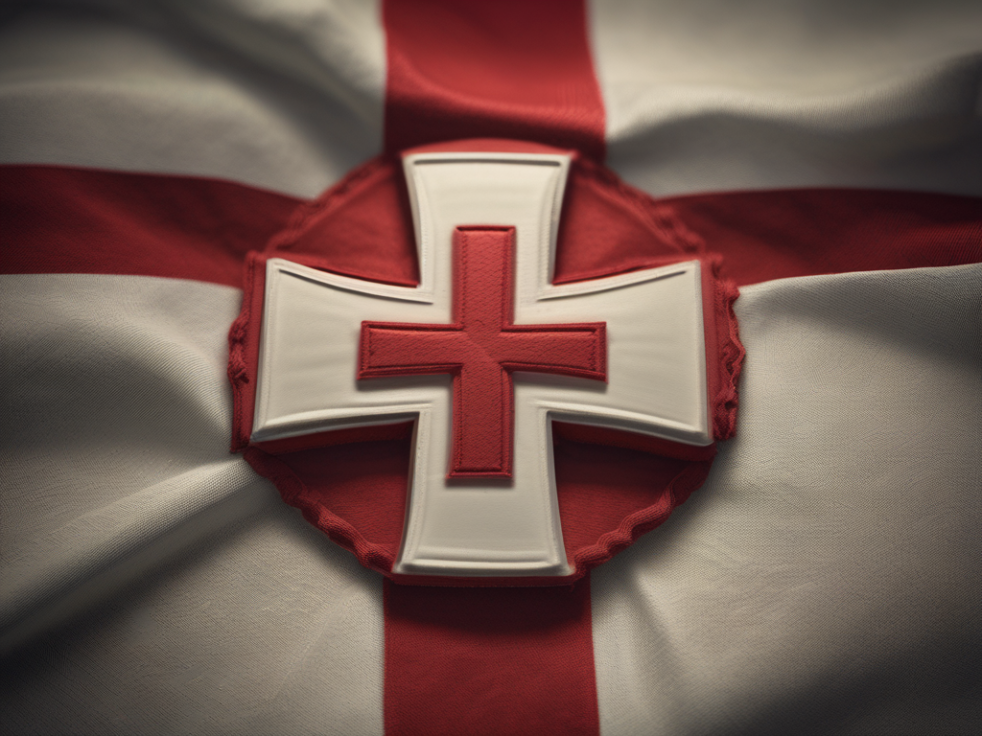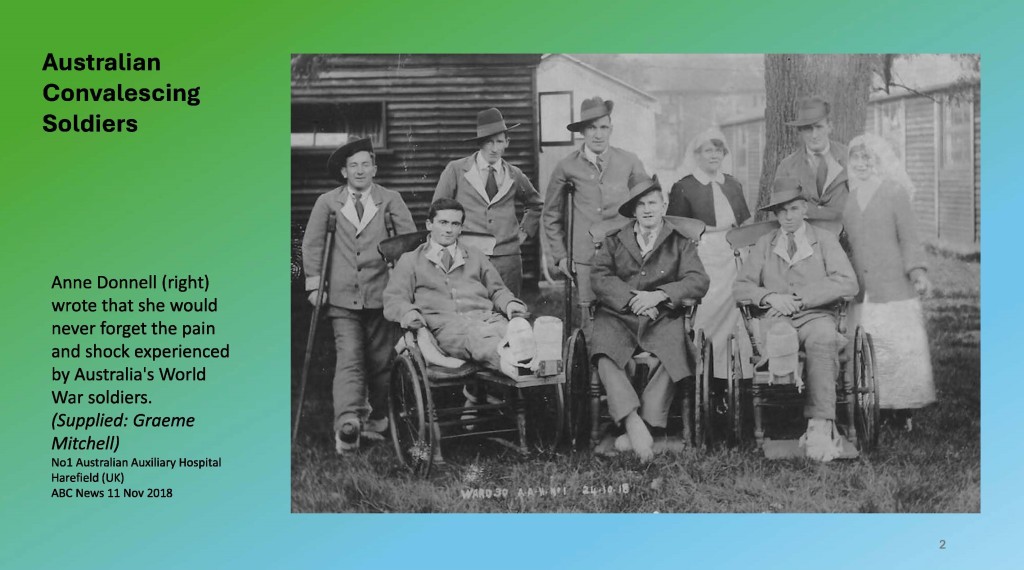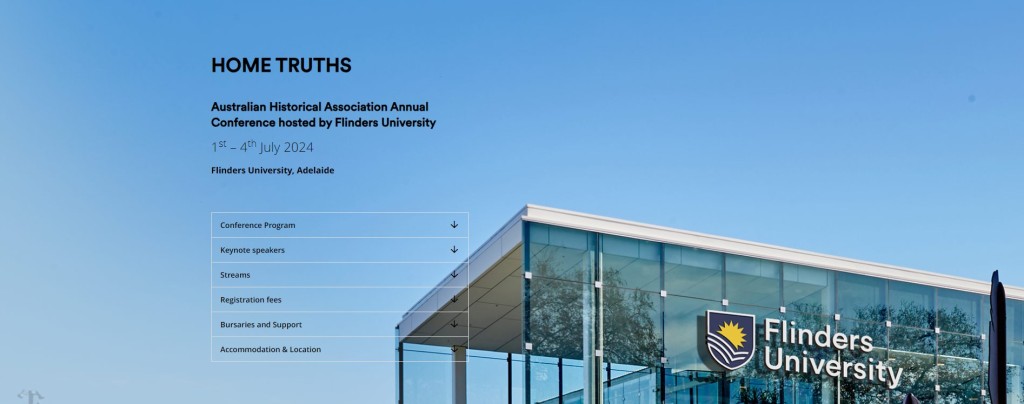Local Camden historian Dr Ian Willis OAM challenges home truths about the early days of WW1 in a talk at the 2024 Australian Historical Association international conference in Adelaide from July 1-4.
The title of his talk is ‘The Convalescent Soldier and the British Red Cross on New South Wales Wartime Home Front in the First World War’.
In his presentation, Dr Willis examines the underwhelming response of Australian military medical authorities in the early months of the war to sick and wounded soldiers.
‘The role of the historian is to challenge the myths of our past’, he said, ‘which fits the conference theme ‘Home Truths’’.
The conference website states
The search for truth and the dispelling of lies sits at the heart of popular understandings of the task of the historian. Our discipline aims to bring enriched understandings of the past that assist in confronting contemporary challenges.( https://www.flinders.edu.au/engage/culture/whats-on/aha-conference)
In a world where denial and doubt are viable political strategies, the perhaps impossible demand for the discipline to provide simple and actionable truths remains urgent and insistent.
Conference organisers maintain that
historians remain reluctant to speak truths about the past in an authoritative way.
Appealing to historians’ ethics, conference organisers maintain there is a need to move away from a binary view of the world. Instead of an absolutist view of issues and definitive truths
Perhaps, this conference asks, historians might turn to the telling of home truths, local truths, and contestable truths to find the epistemological ground they seek for conversations about the past and the present. Such home truths may be unpleasant and confronting. Some may be tentative, or even speculative, requiring further excavation. (https://www.flinders.edu.au/engage/culture/whats-on/aha-conference)
Dr Willis says, ‘The Anzac legend clouds many truths about the First World War and Australian soldiers.’
‘The myths around the Anzac legend and its religious fervour have created an almost untouchable view of the Australian soldier in the First World War.’
‘One aspect of the Anzac story that has been clouded in the fog of the past is the poor treatment of sick and wounded soldiers in the early months of the war’.
‘The Australian population does not really understand the failure of many aspects of medical treatment of Australian soldiers evacuated from the Gallipoli campaign’.
‘There were gaps in provision of care. These were filled by the newly formed Australian branch of the British Red Cross’.
He says, ‘These activities were groundbreaking and have never been fully acknowledged by military authorities.’
Australian Historical Association
The Australian Historical Association is one of the peak history bodies in Australia. Its members are drawn from universities and research institutions throughout the country and overseas.
The conference is held yearly in various cities across Australia to share research and engage one another on the pressing questions facing our discipline and our communities.
The 2024 conference is hosted by Flinders University at its Bedford Campus in the southern suburbs of Adelaide.
Dr Willis said, ‘It will be a privilege to present my research at this prestigious event’.
‘There will be delegates from all over Australia and overseas attending the conference’, he said.
‘I have been working on this project for some time’, said Dr Willis.
Researchers submit their proposals to conference organisers, who consider their merit. If accepted, researchers can present their work to conference delegates at one of the many sessions across the four days of the conference.
The competitive nature of conference proposals ensures only high-quality research is presented to conference participants.
Dr Willis’s talk will examine his research on the role of the British Red Cross in New South Wales and the foundation of the first convalescent homes for soldiers’ recovery.
The conference proposal submitted by Dr Willis states:
The sick and wounded soldier was the central actor in the performance of Red Cross care during the First World War. This paper uses Jeffrey Reznick’s ‘culture of caregiving’ in his book Healing the Nation to examine the role of the British Red Cross in New South Wales in the convalescent stage in the lines of communications in the early months of the war. The Australian military medical response in this period of the war mirrored many of the events in Great Britain, as did the response of the British Red Cross in New South Wales. This paper will follow these early events and the Red Cross’s groundbreaking role in convalescence in the military medical war machine on the New South Wales wartime home front.
The complete conference paper can be viewed here. (https://hcommons.org/deposits/item/hc:67401/)
Some conclusions from the presentation
The foundation of the BRCS in Australia at the outbreak of World War One was a groundbreaking event in delivering military medical care in Australia.
The British Red Cross in New South Wales stepped into the convalescent space in the lines of communication of the Australian war machine at healing sites, maintaining the country’s military manpower in wartime. Red Cross care started in an informal capacity and progressed to formalised arrangements in convalescent homes.
The Red Cross in New South Wales allowed women to experience the war in their own way and assist in the rest, recovery, and rehabilitation of repatriated Australian soldiers.
In some respects, Red Cross volunteers were agents of the state and provided a form of voluntary taxation. Red Cross caregiving was part of the story of nation-building in wartime by protecting Australian manhood.
Learn more about research by Dr Ian Willis
Learn more about research conducted by Dr Ian Willis OAM here.
Updated 26 June 2024. Originally posted on 24 June 2024 as ‘The Role of British Red Cross in NSW Wartime Front: Home Truths in Australian History’
Discover more from Camden History Notes
Subscribe to get the latest posts sent to your email.




